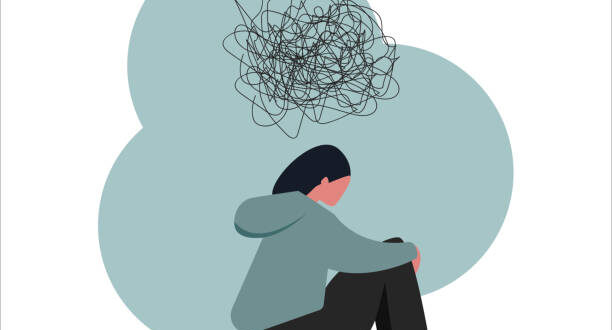Relationship Hunger: isolation and loneliness among university students
Since 11 March 2020, the date on which the World Health Organization declared the global coronavirus pandemic, staying at home has become the ‘norm’: smart working, workers on leave, students in distance learning.
It is certainly difficult today to have an overview of the social and psychological situation of students in this health crisis. For the time being, no large-scale research has yet been conducted on the subject. However, in Italy, a first study was launched in May 2020, where, immediately after the end of the first lockdown, a group of young researchers from different Italian universities distributed, with the collaboration of the CNSU (National Council of University Students), a questionnaire to collect data and opinions of university students.
Having been or still being students who work with the “Mentorship Project”, we too have wondered how they feel today after a year of closure. In our daily interactions, it is possible to understand, through the testimonies of the students themselves, the effects of this historical period: isolation, distance learning, lack of financial resources, and reduced social ties.
Not being able to access universities to attend courses regularly was certainly one of the most difficult aspects. We asked ourselves: what can students feel when they find themselves locked up in their small apartment or room? In the university residence away from home and/or from your country? without being able to meet neither professors nor their companions?
Those who live with their parents are certainly lucky enough to be able to benefit from emotional support, but they can feel suffocation and a brake on their desire for autonomy.
All these constraints – the strengthening of isolation, confinement, the restrictions imposed on sociability – have aggravated the psychological tensions to which students are already exposed.
A recent Odoxa survey, conducted on subjects aged 15-30, shows that 34% have already consulted a doctor or psychologist for symptoms such as depression, isolation, loneliness, anxiety, etc. 70% of students say they have encountered difficulties in taking distance courses. Therefore, in the same survey, 80% of students say they are concerned about the difficulties they will encounter in completing their studies. Lastly, 72% fear that their degree will be worthless at the end of this health crisis and that this distance learning could penalize them once they enter the job market.
However, we must keep in mind that not all students experience the same situation in everyday life. The psychological consequences of distance learning may be more evident among freshmen, those experiencing financial precariousness, and international students. The risk of isolation and school dropout is higher for those living in conditions of socio-economic fragility.
In fact, in addition to the problems of psychological distress, there are also those of material nature: not everyone has the adequate materials to follow lessons or to continue their studies. In Italy, students are still financially supported by their parents. However, many cannot take advantage of family help and for this reason, they do student’s jobs: commercial, restaurants, babysitting, etc. Unfortunately, these jobs have been affected, like many others, by the health crisis leading to their disappearance. As a result, a large number of students found themselves without a salary and therefore without the possibility of paying for accommodation or their studies.
It’s important to remember that the university experience is not only made up of books and exams but also by experiences, meetings, socialization, etc… fundamental aspects, which took a back seat during the pandemic. That’s also because we often assumed that university students are autonomous adults and that these aspects are no longer important. However, this vision contributes to their marginalization and reinforces the feeling of loneliness.
It becomes of essential importance not to deprive this generation of the right to study, which implies not only adequate economic support but also psychological assistance and more inclusive policies. Today, still forced behind our computer screens, we have the opportunity to take advantage of this suspended time to start a dialogue on the rights of students in the present and the future.
And you who read us, if you are a student, how did you live university life during the first months of the pandemic? We would love to read about your experiences.
Sources:
- https://www.dors.it/page.php?idarticolo=3548
- https://www.santelog.com/actualites/covid-19-depression-et-solitude-atteignent-des-sommets-chez-les-etudiants
- http://www.slate.fr/story/199833/grande-deprime-etudiants-universites-covid-19-confinement-crise-perte-emploi
- http://www.cnsu.miur.it
- https://www.medicina.ulisboa.pt/os-efeitos-colaterais-da-pandemia-nos-estudantes
- https://www.internazionale.it/notizie/2021/02/23/pandemia-scuola-disuguaglianze


